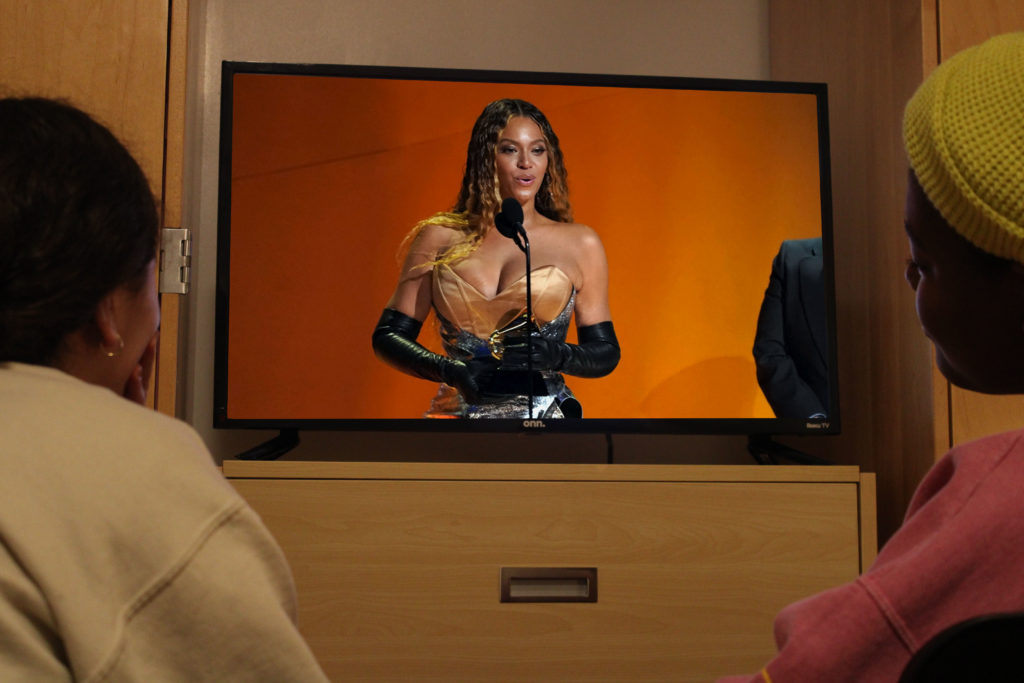International superstar Beyoncé made history Sunday when she became the artist with the most Grammy awards in history – 32 and counting.
But while that number seems like an extraordinary feat, Beyoncé has only won in a major Grammy category once – when “Single Ladies” was named Song of the Year in 2010 – despite 17 nominations for Record, Song and Album of the Year altogether. So when she was up for the three major categories yet again in 2023 with her critically acclaimed, experimental seventh solo studio album “RENAISSANCE,” fans and music critics alike were shocked when she didn’t come out on top.
Out of her 88 total nominations since 1999, virtually all of Beyoncé’s 32 awards have been in R&B, Rap or Urban Contemporary categories. Best Urban Contemporary Album, which Beyoncé won in 2017 and 2019, has since been renamed to Best Progressive R&B Album in 2020 after artists like Tyler, the Creator called the name a “backhanded compliment” and voiced concerns about racial connotations. The Recording Academy televises about 90 percent of the awards for genre-specific categories in the Grammys pre-show instead of the main ceremony, delegating them to a less influential platform and occasion. Despite decorating Beyoncé with the most Grammy awards of all time, the academy has neglected her revolutionary and universal contributions to the music industry as a result of minimizing her recognition in the nationally broadcasted show.
“RENAISSANCE” debuted at number one on the Billboard charts this summer and instantly broke the Spotify record for the most streamed album in a single day by a female artist, garnering more than 40 million listens. “RENAISSANCE” was not only a genre-bending and revolutionary return to house music – it also paid homage with proper credit to the ballroom and drag artists from the 1980s and 1990s who inspired the album.
After losing the coveted Album of the Year award for the third time in 2016 with her smash hit “Lemonade,” which even drew criticism from Adele, who won the award that year, fans and music critics alike thought the fourth time would be a charm in 2023. “RENAISSANCE” was not just an album but an immersive experience, with each track blending together to perfection. So when Harry Styles’ nonexperimental third album “Harry’s House” was announced as the winner, audiences were shocked. That shock turned into frustration and even anger when Styles got up to the podium and declared that “this doesn’t happen to people like me very often.” Fans argued that it’s difficult to think of a group of people who are awarded by the Grammys more.
Styles’ puzzlingly tone-deaf comment neglected the decades-long lineage of white artists who have monopolized Album of the Year throughout Grammys history, especially after being up against artists like Beyoncé, Bad Bunny and Lizzo. As one of the most rich and famous musicians in the world since he appeared on The X Factor when he was just 16, the justification his fans scraped together about his small town upbringing didn’t hold up. He may not have meant any harm, but his statement reflects the rampant inequity of the awards show year after year.
A Black woman has not won Album of the Year in more than two decades since rap artist Lauryn Hill won in 1999 for “The Miseducation of Lauryn Hill.” And while fans certainly can’t expect Beyoncé to win every award she is nominated for, it’s baffling that the most awarded artist in history has not won Record of the Year or Album of the Year even once throughout her career.
Accusations that highly awarded artists like Beyoncé are “overrated” only go so far when looking at the facts. White industry talent has consistently raked in the top honors of the Grammys year in and year out – just 11 Black artists have won Album of the Year in the show’s 65-year history. Styles as an artist draws stylistic and fashion inspiration from the very culture “RENAISSANCE” samples, but Beyoncé gives those artists concrete credit in her work instead of simply borrowing aesthetics. She even thanked the queer community for “inventing the genre” in her historic acceptance speech for Best R&B Song.
When the academy votes next year, they must turn their empty gestures like renaming categories into concrete acknowledgements and awards for the artists it claims to celebrate. They may have renamed the “Urban Contemporary” category, but they continue to put Black artists in a box time and time again – a testament to the academy’s historic racial bias.







